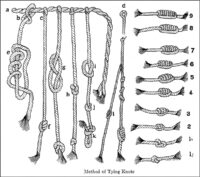Think about how strange yet ordinary are space and time, here and now. Neither can be held, or for that matter seen or heard, and yet both play an undeniably important role in everyday existence. In order to experience and use them, we’ve created tangible substitutes for each.
In order to reckon with time we invented the clock, and now the entire world operates on clock time. The invisible, untouchable, undefinable and ultimate uncertainty of time itself has been converted to tangible years, days, hours, minutes, seconds, milliseconds, and nano-seconds, calculated mechanically – tick-tock – or electronically – hmmm – by monitoring the vibrations of quartz crystals and cesium atoms. However it’s done, clock time is something we’ve imaginatively created.
Time flows, but it’s a flow of what, exactly? We can’t answer that question, so the best we can do is observe states of change, and ascribe those changes to time; as to the actual substance of time we can only guess.
The rhythmic cycles of nature, cyclical time, preceded clock time and sufficed for our needs and those of the earth’s living system just fine. Sidereal, circadian, and seasonal cycles comprise patterns that govern biochemical clocks. So it is we row our boats gently down the stream. Using clock time, on the other hand, the imposition of mechanistic rather than natural time, is anything but gentle. As for finding “now”, a transitory but mysteriously eternal instant of no duration, good luck! It’s all there is, but when we think we’re in it, too late! it’s already gone.
This brings us to space, that elusive place called “here.” Just where exactly is here? It is, seemingly, that place where each of us are during the equally elusive “now.” Space, like time, has no qualities or characteristics of its own, and so we’ve chopped it up into tangible, measured chunks between objects. From inches to light-years, the only way we can come to grips with space is by substituting our own human frame-of-reference. It is all but impossible to imagine a “here” without a “now.” Although both space and time are without qualities or ingredients, we cannot do without them.
Space, it was once thought, was pure emptiness, devoid of everything. Now we know otherwise; space is filled with energy, quantum field virtual particles, gravity waves, matter, and probably much more. Far from the total void we imagined, space is brimming with activity. Our anthropomorphic frame-of-reference has elevated the role of matter, but we’ve learned that it comprises merely 4% of the observable universe. The rest? Yup, it’s space, the bubbling soup in which we thinking carrots and onions float.
This brings us to mind, the consciousness that appears to have arisen in space and time. Is mind an anomaly or something more? Is it possible that space and time are qualities of mind inherent in the universe itself and that human consciousness reflects a deep structure of existence impossible to detect directly but constantly expressed?
The idea of the ether, an invisible but all-pervasive presence, was popular for a long time, but was abandoned in the modern age of physics. Today, quantum field theory has become our modern-day ether, the universal workings of yet another invisible, all-pervasive presence. Is it possible that a universal consciousness underlies all-and-everything, the animate and inanimate? Does it matter, and how would we even know?
Thus we grapple with the interpenetrating and non-obstructing mysteries of space, time, and consciousness.






Be First to Comment